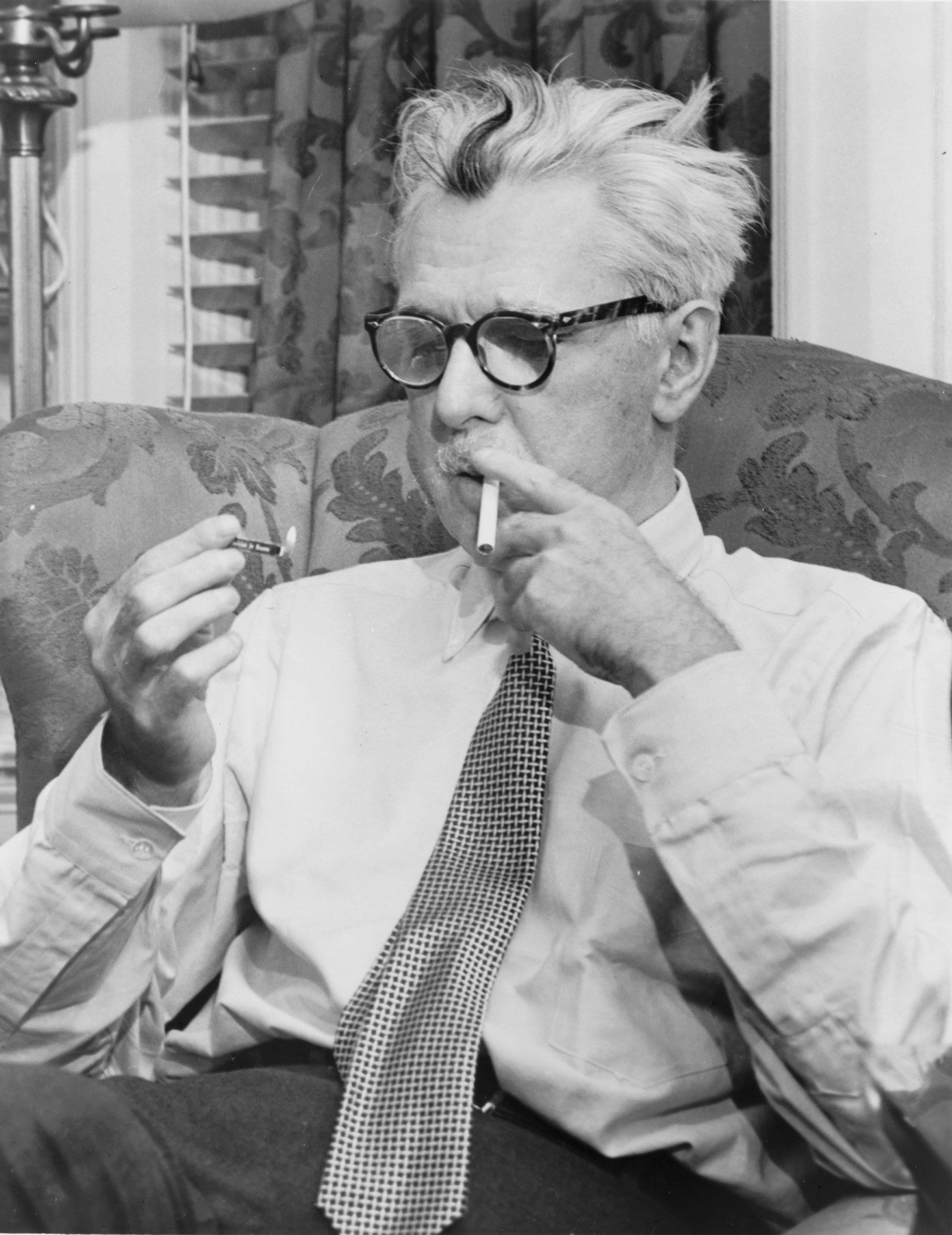Preface to A Thurber Garland (1955)
From other writings
James Thurber Quotes
“He knows all about art, but he doesn't know what he likes.”
Cartoon caption, The New Yorker (4 November 1939). Parody of "I don't know much about art, but I know what I like."
"Word Dance — Part One", A Thurber Carnival (1960)
Cartoon captions
Variant: He knew all about art, but he didn't know what you like.
“Love is blind, but desire just doesn't give a good goddam.”
sic
"The Clothes Moth and the Luna Moth", The New Yorker (date unknown); Further Fables for Our Time (1956)
From Fables for Our Time and Further Fables for Our Time
Letter to Henry Brandon after an interview with him, explaining his opposition to interviews; quoted by Brandon in As We Are (1961)
Letters and interviews
“He who hesitates is sometimes saved.”
"The Glass in the Field", The New Yorker (31 October 1939); Fables for Our Time & Famous Poems Illustrated (1940). This is the moral of a fable in which several birds reject a Goldfinch's report that he ran into "crystallized air" while flying across a field, where workmen had left a large plate of glass upright. The Swallow rejects the offer to come along with others and prove the Goldfinch wrong.
From Fables for Our Time and Further Fables for Our Time
“I am not a dog lover. A dog lover to me means a dog that is in love with another dog.”
"I Like Dogs", For Men (April 1939); reprinted in People Have More Fun Than Anybody (1994); slightly paraphrased in "And So to Medve", Thurber's Dogs (1955)
From other writings
“I love the idea of there being two sexes, don't you?”
Cartoon caption, The New Yorker (22 April 1939); "A Miscellany", Alarms and Diversions (1957)
Cartoon captions
New York Times Magazine (7 December 1958).
Letters and interviews
"An Introduction", The Fireside Book of Dog Stories (Simon and Schuster, 1943); reprinted in Thurber's Dogs (1955)
From other writings
“The pounding of the cylinders increased: ta-pocketa-pocketa-pocketa-pocketa-pocketa.”
The Secret Life of Walter Mitty (1942)
From other fiction
The New Yorker (2 August 1930), discussing cartooning
From other writings
“The only rules comedy can tolerate are those of taste, and the only limitations those of libel.”
"The Duchess and the Bugs", 'Lanterns & Lances (1961). The piece was "a response" to an award Thurber received from the Ohioana Library Association in 1953.
From Lanterns and Lances
“A pinch of probability is worth a pound of perhaps.”
note for "a future fable", "Such a Phrase as Drifts Through Dreams", Holiday Magazine; reprinted in Lanterns & Lances (1961).
From Lanterns and Lances
Quoted in New York Post (30 June 1955)
Letters and interviews
“Moral: Where most of us end up there is no knowing, but the hellbent get where they are going.”
"The Wolf Who Went Places", The New Yorker, Page 28 http://archives.newyorker.com/?i=1956-05-19#folio=028 (19 May 1956); Further Fables for Our Time http://books.google.com/books?id=ZnhbAAAAMAAJ&q=%22moral+Where+most+of+us+end+up+there+is+no+knowing+but+the+hellbent+get+where+they+are+going%22&pg=PA28#v=onepage (1956)
From Fables for Our Time and Further Fables for Our Time
My Life And Hard Times, referring to a fellow Ohio State student and football star.
From other writings
“The heart has its reasons, which reason does not know.”
Cartoon caption, The New Yorker (27 July 1935)
Borrowing from Blaise Pascal, Pensées, 1670 (published posthumously): ""Le coeur a ses raisons que la raison ne connaît point""
Cartoon captions
“Comedy has to be done en clair.”
You can't blunt the edge of wit or the point of satire with obscurity. Try to imagine a famous witty saying that is not immediately clear.
Letter, March 11, 1954, to Malcolm Cowley. Collecting Himself (1989)
Letters and interviews
"The Case for Comedy", Lanterns & Lances (1961).
From Lanterns and Lances
